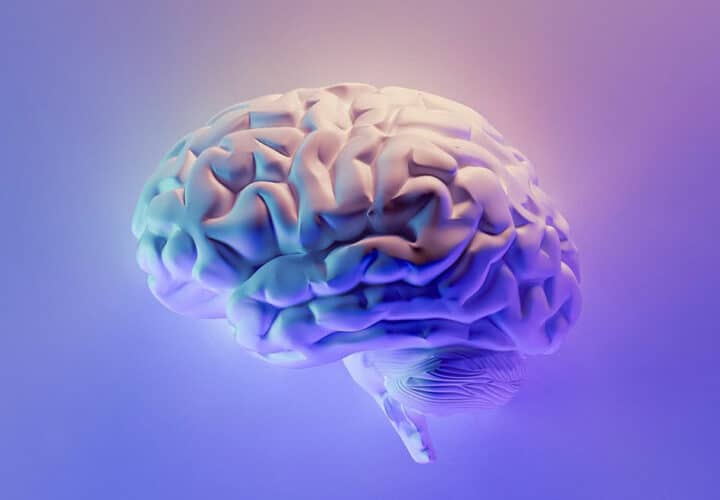Two first-of-their-kind studies presented at the Alzheimer’s Association International Conference show transgender and nonbinary adults are more likely show early possible signs of dementia.
Transgender and nonbinary (TNB) adults are more likely to report early potential symptoms of Alzheimer’s like worsening memory, thinking and depression compared to cisgender adults, according to two studies recently presented at the Alzheimer’s Association International Conference 2021.
Researchers still need to learn more about Alzheimer’s overall, but one possible early sign of the illness is subjective cognitive decline (SCD) — self-reported confusion or memory loss which seems to worsen over time. Even less is known about Alzheimer’s, dementia and cognitive impairment among the transgender community, but experts do know that transgender adults experience health disparities with some risk factors for dementia — like cardiovascular disease, diabetes, obesity, depression and tobacco and alcohol use — that are linked to an increased risk of developing cognitive impairment, according to the Alzheimer’s Association.
Researchers are also learning that transgender adults experience a greater number of health disparities considered risk factors for dementia — including higher cardiovascular disease, depression, diabetes, tobacco/alcohol use and obesity — and the social inequities experienced by transgender adults are also linked to an increased risk of cognitive impairment.
The first study, led by Ethan Cicero, assistant professor at Emory University’s Nell Hodgson Woodruff School of Nursing, analyzed four years of recent data from an annual, nationwide health survey, examining SCD and associated functional limitations, like a reduced ability to work or be social.
The analysis found that one in six transgender adults reports experiencing SCD while only one in 10 cisgender adults (adults that identify with the sex they were assigned at birth), reported the condition. And among those transgender Americans who reported SCD, they nearly two and a half times more likely to report associated social and self-care limitations compared to cisgender adults.
In addition, out of adults reporting SCD, transgender people were on average three years younger than their cisgender counterparts, more likely to be minorities, experience depression and not have health insurance.
“We are not certain what may be causing the elevated subjective cognitive decline rates among transgender adults,” Cicero said. “We postulate that it may be in part due to anti-transgender stigma and prejudice that expose transgender people to high rates of mistreatment and discrimination where they live, work, learn, seek health care and age. More research is needed to identify and to target preventative strategies, develop culturally relevant screenings, and shape policies to improve the health of the transgender population.”
Want to learn more about clinical trials
for Alzheimer’s and dementia?
Check out the Lilly Trial Guide.
One example of the discrimination faced by transgender individuals in the healthcare system is staff failing to use their preferred pronouns or names. A few years ago, Mitch Hymowitz, constituents events manager at the Alzheimer’s Association, needed to get an MRI. Hymowitz, who is transgender, informed the staff prior to the procedure that he was in the process of changing his name and to please update their records to show that he preferred to be called Mitch and not his birth name.
But the medical staff ignored Hymowitz’s request, and when it was his turn to be scanned, he didn’t know who they were calling.
“It became a situation of who are you actually calling up right now, and it ended up being me,” Hymowitz told Being Patient. “I was very uncomfortable for the remainder of the time, because I was immediately discriminated against.”
Transgender and gender-nonbinary adults, or people who do not identify exclusively as male or female, are more likely to experience depression than cisgender adults, according to the second study.
Nickolas H. Lambrou, assistant scientist at the Gleason Lab at the Division of Geriatrics and Gerontology at the University of Wisconsin School of Medicine & Public Health, along with colleagues, studied 2019 data from the same annual survey and found that 37 percent of transgender and nonbinary adults reported experiencing depression that year while only 19.2 percent of cisgender adults experienced depression.
The study also found that nearly a quarter of transgender adults reported cognitive disability — another way of referring to SCD. This was a major spike compared to cisgender adults, only 10.5 percent of whom reported experiencing cognitive disability.
“This research demonstrates that the cognitive health of transgender or gender nonbinary adults is different than cisgender adults, and that there are health differences within the TNB population,” Lambrou said. ”Notably, TNB respondents reported depression and cognitive disability at more than twice the rate of cisgender adults. These rates are concerning because cognitive disability may be a risk factor or early indicator of Alzheimer’s or other dementia.”
According to Lambrou, the next step is further research to figure out why the cognitive health of transgender and nonbinary Americans seems to be different than cisgender adults, and, Lambrou hopes, a future in which researchers include measures to identify transgender and nonbinary participants, for a more accurate representation of this community’s health moving forward.



